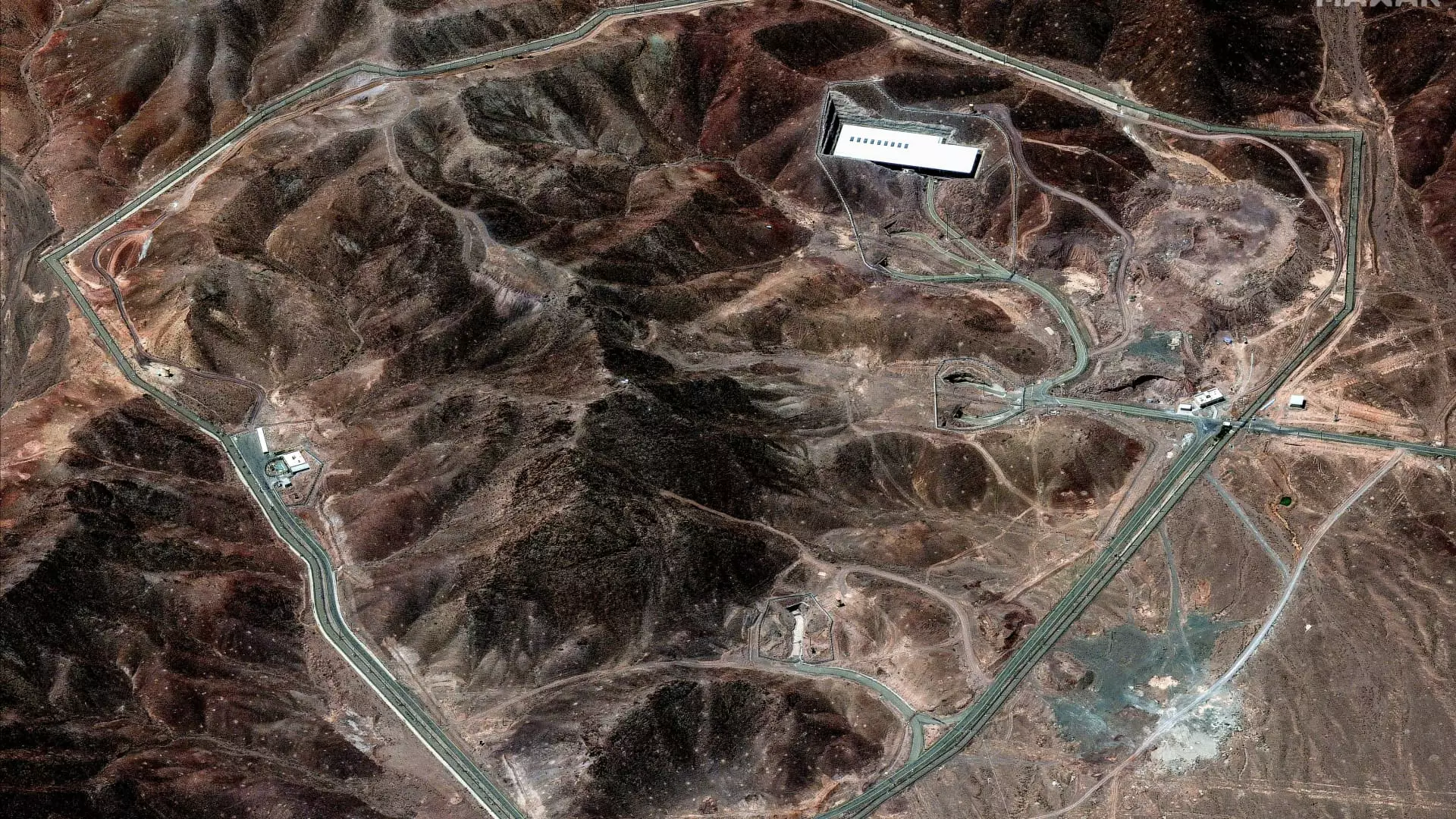Recent developments surrounding the U.S. intelligence revelations about Iran’s Fordo nuclear facility are a stark reminder of the precarious balance of power in the Middle East. The statement from Sen. Markwayne Mullin that U.S. intelligence has confirmed no significant movement of nuclear material from the Fordo site prior to American airstrikes challenges previous reports suggesting otherwise. While this assertion may bolster the narrative of a decisive U.S. military response, it also unveils deeper strategic miscalculations and diplomatic failures that could exacerbate the already volatile situation.
The Fordo facility, an Iranian nuclear installation cleverly nestled beneath 300 feet of rock, was supposed to represent an impenetrable bastion against foreign military intervention. However, the recent military strike aimed at this site, alongside others like Natanz and Isfahan, purportedly obliterated Iran’s nuclear capabilities. One must question the veracity of this claim—if U.S. intelligence asserts that Iran is stockpiling nuclear materials within Fordo, does this not suggest a potential failure in Ruthless Strategy on the part of American policymakers?
The Echoes of Intelligence Failures
Senator Mullin’s assurances about the U.S. capabilities to dismantle what was once deemed “undestroyable” reveal a troubling hubris. The assertion that Fordo has been “severely damaged” hinges on outcomes that remain uncertain and speculative. If the American strategy is predicated on the destruction of essential nuclear capabilities but we simultaneously acknowledge the reality that some Iranian materials may remain unharmed, then we must contend with the growing potential for escalation. Mullin’s insistence on continued military pressure, alongside a partnership with Israel, suggests a willingness to engage in a protracted, perhaps even reckless, military operation.
The real threat lies in the possibility that the U.S. administration might disregard the constraints of congressional authorization in its eagerness to pursue military action. The risks of circumventing democratic checks and balances reveal a startling trend of unilateralism in foreign policy that may lead to long-term unresolved conflicts, not just with Iran but across the geopolitical spectrum. Such moves could push the United States down a path of sustained warfare, further entrenching both nations in a cycle of retaliation.
A Fragile Balance
Moreover, Mullin’s unequivocal declaration that “we will not allow Iran, the world’s sponsor of terror, to have a nuclear weapon,” comes across not only as a political stance but as a dangerous simplification of a multifaceted crisis. The notion of defining Iran solely in terms of its adversarial role neglects the intricacies of diplomatic engagement and the potential for constructive dialogue. Engaging in the militarization of foreign policy could alienate moderate voices within Iran that may favor peaceful negotiation over nuclear escalation.
President Trump’s previous comments frame a narrative of victory against a threat, but they obscure the reality of sustained tension. The prioritization of immediate military success overshadows diplomatic efforts, delivering a blow to potential negotiations aimed at nuclear disarmament and regional stability. It fails to recognize that, historically, conflict does not resolve deep-seated grievances; instead, it tends to entrench divisions further.
A Call for Thoughtful Engagement
The implications of U.S. military actions in Iran will not be felt solely in the nuclear sphere but will resonate throughout the Middle East and beyond. The prospects of increased military engagement, pushed by a feigned sense of security from airstrikes, obscure the fundamental truths of international relations: peace is cultivated through collaboration and understanding, not through domination or destruction.
Center-wing liberals must advocate for a redirection of the U.S. approach towards Iran—a pivot from aggressive interventionism to strategic diplomacy. The future of Middle Eastern geopolitical stability hinges on a prepared willingness to embrace dialogue, understanding, and cooperation, rather than the reliance on bombast and military might. The ultimate question remains: can the U.S. bridge the chasm of misjudgment, or will it continue down this dark and precarious path of military engagement fueled by unfounded confidence?

Leave a Reply